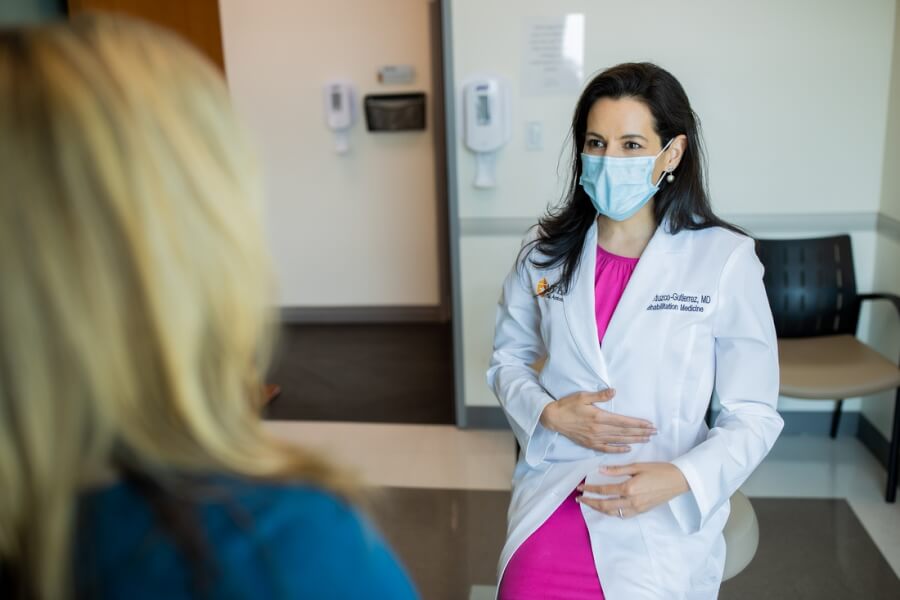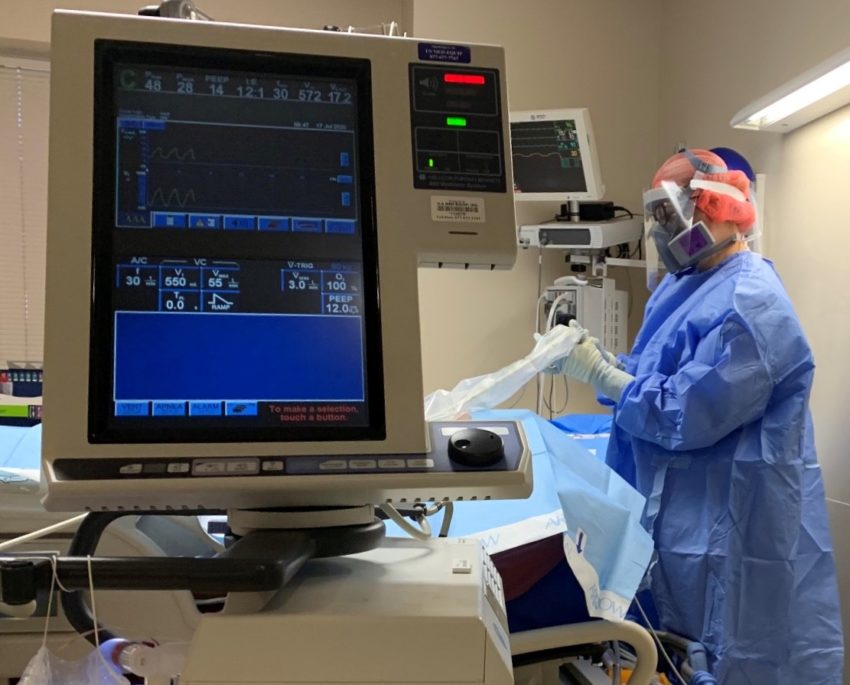Contact: Will Sansom, 210-567-2579, sansom@uthscsa.edu
SAN ANTONIO (Feb. 3, 2022) — Monica Verduzco-Gutierrez, MD, professor and chair of the Department of Rehabilitation Medicine at UT Health San Antonio and medical director of Rehabilitation Medicine Services at University Health, spoke today before the House Ways and Means Committee’s health subcommittee. The virtual hearing, titled “Bridging Health Equity Gaps for People with Disabilities & Chronic Conditions,” included a panelist who described her personal experience with the debilitating effects of long COVID-19.
Dr. Gutierrez sees patients in two long-COVID clinics she helped establish. One clinic is offered through UT Health Physicians, the clinical practice of the Joe R. and Teresa Lozano Long School of Medicine. The other clinic is offered through University Health. She discussed challenges faced by patients and the health care system in addressing long COVID, and asked Congress to support clinic care of these patients.

Edited excerpts of her remarks follow:
“I am approaching my testimony from the perspective of a physical medicine and rehabilitation medicine physician who treats people with disabilities and chronic conditions. Before the pandemic, my patients had brain injuries or strokes. Now I care for an expanding new patient population of persons with long COVID, and I’ll be asking you to ensure that they get access to the care they need.
“In August 2020, before we had any names like PASC [post-acute sequelae of COVID-19] or long COVID, persons with COVID-19 began to show up with fatigue that they said was a hundred times worse than their cancer-related fatigue, or brain fog that was like chemo brain. They had dizziness that was so bad it kept them in bed. They were thankful for the telemedicine visits. And shortness of breath that kept them from work or playing with their kids outside.
“It was a few persons when I started clinics to see these patients, and now estimates say it could be upwards of 14 million to 19 million people in the United States,” Dr. Gutierrez continued.
“One patient had survived over a month in the ICU and [an extended] hospitalization from COVID. She finally got to see me in the clinic, and that day that she saw me, her legs were so weak she was unable to walk, and it was also the last day of her employer-based health insurance coverage. She was saved by all these technologies at the front line, only to be denied access to any therapy to help get her life or her job back.
“Patients are unable to afford the costs of long COVID treatment out of pocket, especially the wide range of services that these patients need. With well over 50 symptoms and visits that take over an hour, long COVID is best addressed with a multidisciplinary approach, and these clinics must be supported.
“I’ve also been seeing insurers start denying coverage of services and treatments for long COVID. They say there is a lack of evidence-based practices, ‘this is a new disease,’ and it takes years to develop these practices.
“I’ve been told also a patient with long COVID can’t do a neurorehabilitation program because they didn’t have a traditional traumatic brain injury, but research shows long COVID overlaps the same symptoms that patients with brain injury have, such as memory, cognition, physical deficits, insomnia, depression, anxiety and suicidality.
“We are seeing enormous resource strains. For me to care for more long-COVID patients, I actually have to see fewer brain injury and stroke patients, and vice versa. Everyone suffers, wait lists are upwards of six months, and action needs to be taken to support the health care workforce for these clinics, along with research and treatments.
“I am thankful you heard from Ms. Fisher [a long COVID survivor]. I also want you to know that for many, long COVID is a disability. It disrupts lives and goals and futures. It is ‘the worst of times.’
“I know members of this committee understand that the long wait to get disability benefits is a problem. Patients who I have cared for during my career, who have to wait for two years to get Medicare, are not getting better. These patients are getting worse. Congress has the ability to act now to bridge health equity gaps.
“As I advocate for persons with long COVID, I can only do so much for this population [that] I see one at a time. Congress has a role in ensuring they get the services they need. My national society — the American Academy of Physical Medicine and Rehabilitation (AAPM&R) — has developed a PASC collaborative of 35 clinics and we have called on the administration and Congress to develop a comprehensive federal plan to defeat the national long COVID crisis.
“I know so many have been impacted by the long-lasting effects of COVID-19, maybe even some of your family and friends. I thank you for your time today and the opportunity to discuss these access barriers. I will be happy to answer your questions.”
The University of Texas Health Science Center at San Antonio, also referred to as UT Health San Antonio, is one of the country’s leading health sciences universities and is designated as a Hispanic-Serving Institution by the U.S. Department of Education. With missions of teaching, research, patient care and community engagement, its schools of medicine, nursing, dentistry, health professions and graduate biomedical sciences have graduated 39,700 alumni who are leading change, advancing their fields, and renewing hope for patients and their families throughout South Texas and the world. To learn about the many ways “We make lives better®,” visit www.uthscsa.edu.
Stay connected with The University of Texas Health Science Center at San Antonio on Facebook, Twitter, LinkedIn, Instagram and YouTube.


